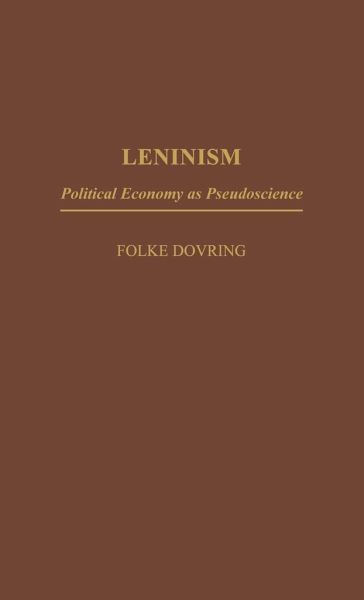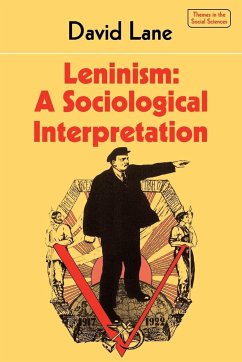
Leninism
Political Economy as Pseudoscience
Versandkostenfrei!
Versandfertig in 1-2 Wochen
69,99 €
inkl. MwSt.

PAYBACK Punkte
35 °P sammeln!
Leninism provides an in-depth analysis of the economic and political doctrines of Lenin, creator of the Communist Party that came into power in Russia in 1917. Based upon the author's comprehensive reading of Lenin's Collected Works (some 10 million words in Russian), the study dissects Lenin's political economy, and shows it to be pseudoscience, based on simple, arbitrary, and unrealistic assumptions. According to Dovring, Lenin was a politician, not a scientist, and his aim was power, not truth. The work begins by providing a brief sketch of Lenin's life and an overview of his career as a wr...
Leninism provides an in-depth analysis of the economic and political doctrines of Lenin, creator of the Communist Party that came into power in Russia in 1917. Based upon the author's comprehensive reading of Lenin's Collected Works (some 10 million words in Russian), the study dissects Lenin's political economy, and shows it to be pseudoscience, based on simple, arbitrary, and unrealistic assumptions. According to Dovring, Lenin was a politician, not a scientist, and his aim was power, not truth. The work begins by providing a brief sketch of Lenin's life and an overview of his career as a writer. Four substantive chapters analyze Lenin's treatment of the peasant problem, science, the proletariat, and democracy. Closing chapters deal with Lenin's personality, which is shown to be pathological in its inability to make concessions to intellectual argument, and the prevalence of pseudoscience in his doctrines. Lenin's doctrines became the groundwork of the Soviet system, and he is responsible for creating its absurdities. The subsequent collapse of the Soviet system, therefore, must be seen in this light.












